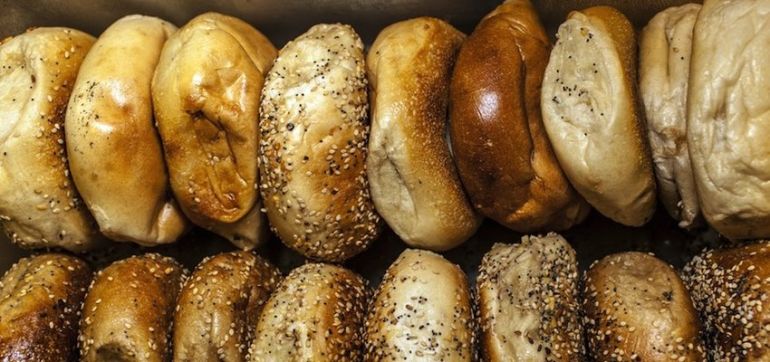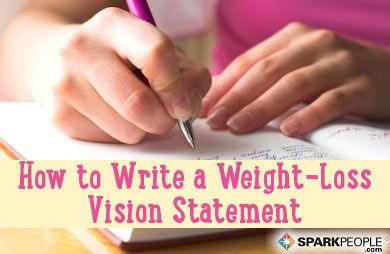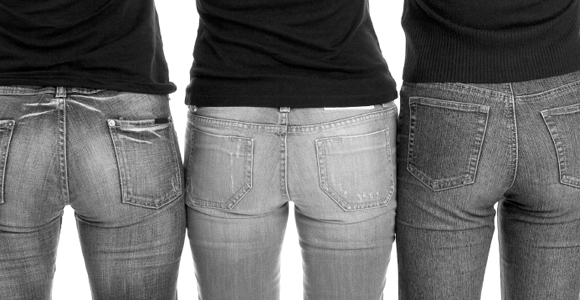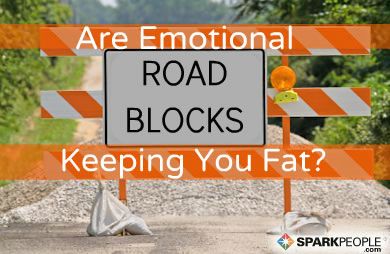Lose Weight > Common Sense To Lose Weight > Common Sense Article > Why Wheat Is Ruining Your Life: The Author Of Wheat Belly Explains
Why Wheat Is Ruining Your Life: The Author Of Wheat Belly Explains

MBG: Is there one group of people that you hear from the most about Wheat Belly?
The most common conversation I hear is about weight loss. When you cut out wheat, you lose the insatiable appetite, the cyclic highs of blood sugar and insulin, and the inflammatory phenomena via its components, gliadin, wheat germ, and gluten.
Many people have told me that when they’ve eaten wheat, they couldn’t stop. Even if they ate a whole plate of pasta and felt stuffed, they wouldn’t stop. Wheat creates incredibly desperate behavior.
We don’t want to fall into the same trap that the dietary and nutrition communities have fallen into. They believe that if you replace something bad with something less-bad that there’s a health benefit from that change.
By that logic, a whole bunch of less-bad things must be good for you!
But there are grades of bad within the wheat world. The worst is probably wheat germ, and the least bad, though very destructive, is pasta.
What’s the hardest part about cutting out wheat?
The addictive potential of wheat! The gliadin protein has opiate-like effects, so wheat is truly addicting.
For many, it causes addictive relationships and the stimulation of appetite. For binge-eaters or bulimics, they experience 24-hours-a-day food obsessions. So lots of people know intuitively that they have this addictive potential because if they’ve had eight hours in which they didn’t have anything made of wheat, they’ve had insatiable cravings, nausea, nervousness, anxiety, headache, paranoia... Some people grab things out of the trash or eat food off of their kid’s plate. People know intuitively that it’s very unpleasant to not have wheat because it’s an opiate withdrawal.
Is wheat an all-or-nothing proposition? Can we dabble in wheat, or do we need to remove it entirely from our diet?
Just cutting back on our wheat intake doesn’t really work. The effects of the components of wheat are too overwhelming. For many people, the gliadin protein in wheat stimulates their appetite for five days. It’s not just a matter of calories or carbs; it’s all the other mind effects.
Plus, the drug industry has persuaded the public that high cholesterol is a risk factor for heart disease, which is untrue. Wheat is a flagrant trigger of heart disease.
What makes people most successful in quitting wheat?
Understanding what they’re going through. When you eat pizza, you provoke the formation of small LDL particles in your liver. One indulgence can pose heart disease risk, on average, for 7 days. That little bit of wheat can provoke small LDL formation in the body. And then you get all of the opiate and other mind effects, so it’s very uncommon for someone to successfully navigate this diet if they only cut back on wheat.
Many people are reluctant to accept that everything they’ve been told about wheat and whole grains is nonsense, and that the exact opposite is true. It’s very unsettling.
Are there foods that people think are gluten-free and they’re actually not?
Our mission is to educate people that wheat does not equal gluten, and vice-versa. Wheat is the whole thing. People who think that wheat is nothing more than a vehicle for gluten tend to go down that misleading path of gluten-free foods.
People are surprised that wheat is in so many processed foods, and that it’s very difficult to find processed foods that don’t contain wheat. Wheat is in virtually everything: canned foods, instant soups, frozen dinners, candy bars, licorice, salad dressings ... So I think that’s what surprises people.
What are your thoughts on the Paleo diet?
The Paleo diet is a good diet, thought it has been oversimplified. The diet of homo sapiens through the millennia in varied climates and terrains has never meant one thing. The Paleo diet of the Pacific Northwest and the Intuits is very different from the Paleo diet of the people who traversed Sub-Saharan Africa, and so on.
What do you think about veganism?
I was a vegetarian 24 years ago. I don’t like what’s happening with factory farms and all the antibiotics used to stimulate growth. But I tried vegetarianism and probably became diabetic. I had fasting blood sugars in the 160-range even though I was jogging three to five miles a day. I became diabetic while I was jogging because all I was eating was grains, fruits, and vegetables.
Vegetarians say that we don’t have the tools of carnivory, like claws or large canine teeth. But we’re the only species that came to carnivory by wit. We watched the true predators and carnivores, such as hyenas, cheetahs, and lions, and became much more skilled. We also began to group hunt, so we had to learn language to communicate with each other. That’s what increased our brain size. We’re the only creatures that came at the consumption of animals by our brains, not our brawn. So it’s a confusing history.
How do we deal with the fact that vegetarians become deficient in Vitamin B12, taurine, omega-3 fatty acid, and vitamin K2? Vegetarianism is not the way humans have evolved.
When we take the whole picture of the evolution and adaptation of humans, there’s no way we can conclude that humans were meant to be vegetarian. It doesn’t mean that you can’t be vegetarian, it just means to do so for humanitarian reasons, not because that’s the way humans were meant to be.
What are your thoughts on the recent NYT piece about the chemical TMAO rising in our blood when we eat meat?
The NYT botched the interpretation. Stan Hazen led the study, and I helped him go through his data. The data did not show that meat and carnitine cause heart disease; that was a misinterpretation by the NYT.
But Hazen’s findings are very disturbing. If I take his data at face value, then fish consumption is the most heart disease-causing food of all, far worse than red meat.
His data are the first to attempt to identify the metabolic consequences of what we put in our mouths and how they’re handled by bowel flora. So I’m not sure what to do with his data because it’s so contrary to everything else we’ve seen. I think he’s looking at people with distorted bowel flora. If you look at a diseased population, you may come to false conclusions. He has thrown a wrench in the works, but I don’t think we should take what the NYT said as the conclusion of Hazen’s data.
What’s your take on corn?
Corn is next in line after wheat! Corn has become a bastardized, corrupt product in the hands of genetic modification. But corn pales in comparison to wheat.
Corn does not have an appetite stimulant, cause abnormal bowel activity, lead to autoimmune disease and food obsession, behavioral outbursts, bipolar illness, or inflammatory changes in the arteries. Corn is bad, but it doesn’t have the full range of effects that wheat does. Corn is bad because of its carbohydrate content, glyphosate residues, or the unintended effects of the Bt toxin. Corn is a very concerning thing now, particularly with the advent of genetic modification, but it’s still not as bad as wheat.
How do you feel about sugar and dairy?
Sugar is a big problem, but no one's saying sugar should be a part of your diet the way they do for wheat. Dairy is a problem, too: 20% of people are sensitive to whey protein. I also have problems with the estrogen content and bovine growth hormone in dairy products. And there’s the new issue of varying forms of casein. I picked on wheat because it has everyone’s blessing; it’s accepted by everyone and viewed as healthy. But that’s not to say that dairy and sugar aren’t problems.
What do you eat?
My philosophy is a return to real ingredients. Eggs, vegetables, some fruit, avocados. We should eat regular food and get rid of this notion of processed foods for breakfast. I understand that we have kids and we have people we need to entertain. So I try to recreate foods that are familiar to people. I show people how to make pizza, muffins, cookies, chocolate éclairs. We use benign ingredients. We don’t use wheat, gluten-free carbohydrates, or sugar. You can turn something like coffee cake into something that’s benign and healthy. Life is good without wheat.
Have you been surprised by any of the reactions to Wheat Belly?
Well, the good stuff is great — I get so many comments on my blog about success stories. People who’ve lost a lot of weight, children who don’t have asthma anymore. A mom sent me a story about her son who was diagnosed with Type 1 diabetes. She made him wheat-free, and now he’s no longer diabetic. Life-changing stuff.
The negatives have been easy. Whenever I’ve had to debate nutritionists, it’s like parrying with a child. I’ve been surprised how little they know about their own crop. Nutritionists are shocked to hear what I’ve found about wheat. They have these empty criticisms, such as that I say that gluten has changed and they don’t believe it has. I don’t know how they can deny the thousands of research papers that have demonstrated the biochemical changes in the gluten protein due to the efforts of agro business and genetics research.
Or they say that wheat has been a part of our diet for thousands of years, why should we change now? Well the key issue is that, wheat has been changed. So I have yet to hear any legitimate criticisms.
What’s next for you?
My 30-minute meal cookbook is due out Jan 2014. The thing that really excites me is a follow-up to Wheat Belly. There’s so much more to talk about. There’s so much to know and understand because we have to backpeddle on all the nonsense we’ve been given. So there’s so much more information needs to get out there. We’ve also formed a Wheat Belly Lifestyle Institute for people who really want to be shown exactly what to do.
This interview was edited and condensed. To learn more about Wheat Belly or Dr. William Davis, connect with him on Facebook, at his website, WheatBellyBlog.com, and on Twitter, @WilliamDavisMD. His bestselling book Wheat Belly is available for sale on Amazon.com.
Photo Credit: Shutterstock.com
Related Articles
-
How to Lose Abdominal Fat
If you have been looking for a way to lo
-
The Truth About Atkins Diet And Carbohydrates In Dieting
It seems to be not so long ago that the
-
Are you overeating to pump up depleted brain chemicals?
Do you experience strong cravings for modern “drug” foo
-
Novo Nordisks Liraglutide Effective At Inducing Weight Loss
Novo Nordisk has just announced that their drug liraglutide is ex
-
How Your Initial Programming Sabotages Your Diet, Weight Loss & Fitness Goals
During the first part of your life you had no control: your parent
-
How To Get Slim - 10 Simple Tips
What if an ad on the television offered the claim that by taking ju
- DON'T MISS
- Employer offers dieters $20 monthly and a lottery to lose weight
- Do You Want To Be Attractive?
- Exercises For Love Handles – Make Them Go Away For Good!
- Get Rid Of Stress To Lose Weight
- Four Easy Steps to Lose Thigh Fat
- Will be the Diet Remedy Program, the best 1 For You?
- The Diet Solution That Is Guaranteed To Work - The GOYA Principle
- Get To Know Your Subconscious Mind
- Safe Effective Weight Loss with Little Effort
- Three Things That Keep Us From Faster Weight Loss




